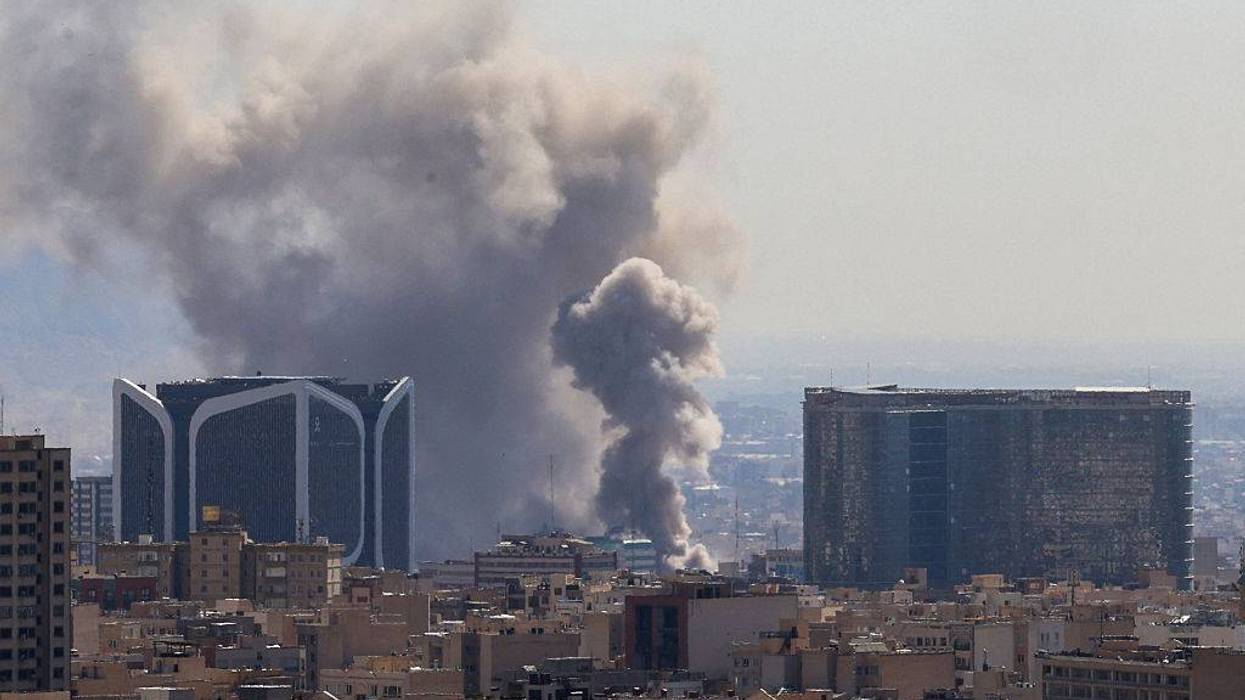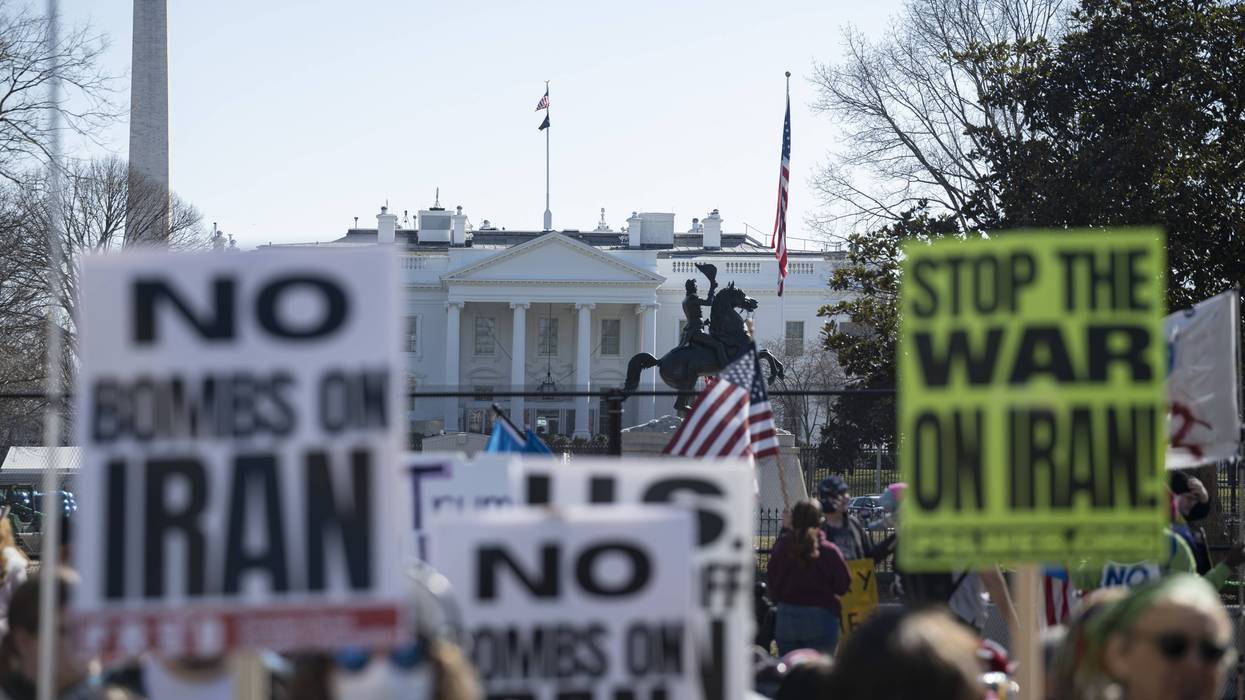March, 12 2014, 03:02pm EDT

For Immediate Release
Contact:
Liz Bartolomeo 202-789-7753 ebartolomeo@fenton.com
Angela Bradbery (202) 588-7741
On Second Anniversary of U.S.-Korea Free Trade Agreement, U.S. Exports Down 11 Percent, Imports from Korea Up and Deficit with Korea Balloons 47 Percent, Fueling Congressional Skepticism About Obama TPP Export Promises
Export Decline Hits U.S. Farmers and Auto Workers Particularly Hard, Dismal Outcomes of Pact Used as TPP Template Will Bolster Opposition to Obama Bid for Fast Track Authority
WASHINGTON
Two years after the implementation of the U.S.-Korea Free Trade Agreement (FTA), government data reveal that the Obama administration's promises that the pact would expand U.S. exports and create U.S. jobs are exactly opposite of the actual outcomes: a downfall in U.S. exports to Korea, rising imports and a surge in the U.S. trade deficit with Korea. Using the administration's export-to-job ratio, the estimated drop in net U.S. exports to Korea in the FTA's first two years represents the loss of more than 46,600 U.S. jobs.
The damaging Korea FTA record, detailed in a new Public Citizen report, undermines the administration's attempt to use the same failed export growth promises to sell an already skeptical Congresson Fast Track authority for the Trans-Pacific Partnership (TPP), a sweeping deal for which the Korea FTA was the template.
Contrary to the administration's promise that the Korea FTA would mean "more exports, more jobs":
* U.S. goods exports to Korea have fallen below the pre-FTA average monthly level for 21 out of 22 months since the deal took effect.
* The United States has lost an average of $385 million each month in exports to Korea, given an 11 percent decline in the average monthly export level in comparison to the year before the deal.
* The United States lost an estimated, cumulative $9.2 billion in exports to Korea under the FTA's first two years, compared with the exports that would have been achieved at the pre-FTA level.
* Average monthly exports of U.S. agricultural products to Korea have fallen 41 percent.
* The average monthly U.S. automotive trade deficit with Korea has grown 19 percent.
The U.S. exports downfall is particularly concerning given that Korea's overall imports from all countries increased by 2 percentover the past two years (from 2011 to 2013).
The average monthly trade deficit with Korea has ballooned 47 percent in comparison to the year before the deal.As U.S. exports to Korea have declined under the FTA, average monthly imports from Korea have risen four percent. The total U.S. trade deficit with Korea under the FTA's just-completed second year is projected to be $8.6 billion higher than in the year before the deal, assuming that trends during the FTA's first 22 months continue for the remaining two months for which data is not yet available.
Meanwhile, U.S. services exports to Korea have slowed under the FTA. While U.S. services exports to Korea increased at an average quarterly rate of 3.0 percent in the year before the FTA took effect, the average quarterly growth rate has fallen to 2.3 percent since the deal's enactment - a 24 percent drop.
"Most Americans won't be surprised that another NAFTA-style deal is causing damage, but it's stunning that the administration thinks the public and Congress won't notice if it recycles the promises used to sell the Korea pact - now proven empty - to push a Trans-Pacific deal that is literally based on the Korea FTA text," said Lori Wallach, director of Public Citizen's Global Trade Watch. "The new evidence of the Korea FTA's damaging record is certain to make it even more difficult for the Obama administration to get Congress to delegate its constitutional trade authority via Fast Track for the TPP."
The decline in U.S. exports under the Korea FTA contributed to an overall zero percent growth in U.S. exports in 2013, rendering virtually impossible Obama's stated goalto double exports by the end of 2014. At the export growth rate seen over the past two years, the export-doubling goal would not be reached until 2054. While the Korea pact is the only U.S. FTA that has led to an actual decline in U.S exports, the overall growth of U.S. exports to nations that are not FTA partners has exceeded combined U.S. export growth to U.S. FTA partners by 30 percent over the past decade.
"The data simply do not support the Obama administration's tired pitch that more FTAs will bring more exports," said Wallach. "Faced with falling exports and rising, job-displacing deficits under existing FTAs, the administration needs to find a new model, not to repackage an old one that patently failed."
The Korea FTA has produced very few winners; since the FTA took effect, U.S. average monthly exports to Korea have fallen in 11 of the 15 sectors that export the most to Korea, relative to the year before the FTA. And while losing sectors have faced relatively steep export declines (e.g. a 12 percent drop in computer and electronics exports, a 30 percent drop in mineral and ore exports), none of the winning sectors has experienced an average monthly export increase of greater than two percent. Ironically, many sectors that the administration promised would be the biggest beneficiaries of the Korea FTA have been some of the deal's largest losers.
AGRICULTURE: While the administration argued for passage of the FTA in 2011 by claiming, "The U.S.-Korea trade agreement creates new opportunities for U.S. farmers, ranchers and food processors seeking to export to Korea's 49 million consumers," average monthly exports of U.S. agricultural products to Korea have fallen 41 percent under the FTA.
* U.S. average monthly poultry exports to Korea have fallen 39 percent.
* U.S. average monthly pork exports to Korea have fallen 34 percent.
* U.S. average monthly beef exports to Korea have fallen 6 percent.
Compared with the exports that would have been achieved at the pre-FTA average monthly level, U.S. meat producers have lost a combined $442 million in poultry, pork and beef exports to Korea in the first 22 months of the Korea deal - a loss of more than $20 million in meat exports every month.
AUTOS AND AUTO PARTS: The administration also promisedthe Korea FTA would bring "more job-creating export opportunities in a more open and fair Korean market for America's auto companies and auto workers," while a special safeguard would "ensure... that the American industry does not suffer from harmful surges in Korean auto imports due to this agreement." The U.S. average monthly automotive exports to Korea under the FTA have been $12 million higher than the pre-FTA monthly average, but the average monthly automotive imports from Korea have soared by $263 million under the deal - a 19 percent increase. So while U.S. auto exports have risen very modestly under the FTA, those tiny gains have been swamped by a surge in auto imports from Korea that the administration promised would not occur under the FTA.
* In January 2014, monthly auto imports from Korea topped $2 billion for the first time on record.
* About 125,000 more Korean-produced Hyundais and Kias were imported and soldin the United States in 2013 (after the FTA) than in 2011 (before the FTA).
* Salesof U.S.-produced Fords, Chryslers and Cadillacs in Korea increased by just 3,400 vehicles.
The post-FTA flood of automotive imports has provoked a 19 percent increase in the average monthly U.S. auto trade deficit with Korea. The Obama administration has sought to distract from this dismal result by touting the percentage increase in U.S. auto sales to Korea. This allows the sale of a small number of cars beyond the small pre-FTA base of sales to appear to be a significant gain when in fact it is not.
Read the new Public Citizen report on the Korea FTA record at https://www.citizen.org/documents/Korea-FTA-outcomes.pdf
Public Citizen is a nonprofit consumer advocacy organization that champions the public interest in the halls of power. We defend democracy, resist corporate power and work to ensure that government works for the people - not for big corporations. Founded in 1971, we now have 500,000 members and supporters throughout the country.
(202) 588-1000LATEST NEWS
Trump's Unprovoked War on Iran Triggers 10% Spike in Global Oil Prices
"When global energy security can be upended by a single flashpoint, it shows how unstable and risky our dependence on oil and gas is," said one critic.
Mar 02, 2026
President Donald Trump's unprovoked, unconstitutional, and politically unpopular war against Iran is about to cause pains for Americans at the gas pump.
CNBC reported on Monday that Brent crude oil prices surged by 9.3% to a 52-week high of $79.40 per barrel, while US West Texas Intermediate crude oil prices spike by 9% to $73.10 per barrel.
This spike in oil prices is projected to directly lead to an increase in gas prices in the coming days.
Petroleum industry analyst Patrick De Haan noted in a Monday update on his Substack page that gas prices in the US had already risen by roughly six cents in the last week, and that war with Iran would drive these prices higher.
"Developments surrounding Iran—particularly any threat to regional production or shipping flows—are likely to remain the dominant driver of oil prices," wrote De Haan, "and could keep crude elevated or push it higher if tensions intensify further."
A Sunday research note from Wells Fargo cited by CNBC drew attention to the importance of the Strait of Hormuz, which the Iranian government closed off over the week and which is used to transport roughly 20% of the global supplies of petroleum and liquified natural gas.
According to Wells Fargo, a "prolonged" closure of the strait would result in "an oil shock to $100+ per barrel," which it described as the "worst-case scenario" for global stock markets.
In addition to closing off the Strait of Hormuz, Iran has also been launching attacks on other nations' energy infrastructure.
According to a report from Bloomberg, Saudi Arabia’s largest oil refinery at Ras Tanura had to cease operations on Monday after being struck in a drone attack.
"An attack on major energy infrastructure is a nightmare scenario for global markets," noted Bloomberg, "with maritime traffic through the crucial Strait of Hormuz all but halting."
Olivia Langhoff, managing director at climate justice organization 350.org said that the global economic disruptions being caused by the Iran war shows the folly of continuing to rely on fossil fuels for energy needs.
"When global energy security can be upended by a single flashpoint, it shows how unstable and risky our dependence on oil and gas is," Langhoff said. "Renewable energy provides homegrown power that remains secure and affordable regardless of geopolitical shocks."
The increase in gas prices comes at a time when US voters have been expressing widespread dissatisfaction with the economy under Trump, as polls show voters have been particularly anxious about the prices of groceries and utilities, among other essentials.
Keep ReadingShow Less
Only 25% of Americans Support Trump Attack on Iran: Poll
"If this goes on... this is going to become a political disaster," said one foreign policy expert.
Mar 02, 2026
President Donald Trump's war in Iran is extraordinarily unpopular, according to a poll conducted shortly after the US and Israel carried out massive strikes on the country Saturday.
The survey, conducted by Reuters/Ipsos, found that just 27% of voters approved of the strikes, which have killed at least 555 Iranians as of Monday morning and resulted in retaliation from Iran that has killed at least four US service members, with more casualties expected according to a spokesperson for the US Joint Chiefs of Staff.
Meanwhile, 43% of respondents disapproved of the military action, while 29% said they were not sure.
A majority of Republicans said they approved of the strikes, with 55% expressing support. Still, 13% disapproved, and a noteworthy 31% said they were unsure.
Approval is dismal with nearly everyone else. Only 19% of independents expressed support compared to 44% who disapproved. And though Democratic leaders in Congress have done little to stand in the way of the strikes, their voters are overwhelmingly against them: 74% said they disapproved, while just 7% approved.
The poll reflects a wider skepticism of US military intervention, with 56% of respondents saying the president was too quick to deploy military force in recent months, including in Venezuela, Syria, and Nigeria.
Compared with previous US military interventions in the Middle East, such as the invasions of Iraq and Afghanistan, which—at least at their outset—enjoyed broad support from the American public following intense government efforts to drum up support, there has been little effort by the Trump administration to define the purpose of war with Iran.
Trump's justification for launching the war has shifted wildly since he began amassing troops in the region. Trump has most recently said the strikes were intended to stop an "imminent threat" from Iran; meanwhile, the Pentagon has told Congress there was no sign Iran was planning an attack unless the US did so first.
The president previously said his push for war was to prevent Iran from developing a nuclear weapon, an assertion at odds with his claim that his strikes in June "obliterated" the country's nuclear capabilities.
Trita Parsi, executive vice president of the Quincy Institute for Responsible Statecraft, told Al Jazeera that Trump's shifting explanations reek of "desperation."
"It's very clear that Trump has a tremendous difficulty finding a justification for this war of choice that he's embarked on," he said. "The reality is that if this goes on for another week or two, this is going to become a political disaster."
"So now he's suddenly, desperately, using all kinds of justifications: Liberating the Iranian people, Iran is fighting against civilization," Parsi said. "If he actually had a case, he would have stuck to that point and made it clearly. But he doesn't have one."
Keep ReadingShow Less
Call Grows to Impeach Trump, 'The Most Dangerous Man on the Planet'
"Trump’s illegal war on Iran and the rule of law," said one pair of campaigners, "establish an intolerable pattern of egregious abuses of power, directly threatening our constitutional order, our safety, and our way of life."
Mar 02, 2026
After the unprovoked bombing of Iran over the weekend by the United States and Israel—strikes that included the unlawful assassination of Iranian Supreme Leader Ali Hosseini Khamenei—the call for US President Donald Trump to be impeached and removed from office has grown as the straightest path to hold the US leader to account for the attacks which policy and human rights experts have condemned as a serious war crime.
With a regional war in the Middle East that was already boiling from Gaza to Lebanon and from Syria to Yemen now exploding in the wake of the US-Israeli attacks on Iran, Globe and Mail columnist Debra Thompson on Sunday called Trump "the most dangerous man on the planet."
"Rather than ending wars," Thompson notes, "Trump has initiated military action eight times, carrying out attacks in seven countries (Syria, Iraq, Iran, Nigeria, Yemen, Somalia, and Venezuela) in 2025." Such a pattern of violence and warmongering should make clear that failure to restrain Trump has only emboldened him.
"The recurring danger in this latest presidential aggression is that there are no guardrails, no constraints, and no post-hoc justification," writes Thomson, "other than that Mr. Trump is the President of the United States and can do whatever he wants."
But American presidents cannot simply do whatever they want. According to a Reuters/Ipsos poll out Sunday, less than 25% support the president's aggression against Iran. In the first wave of the US military attack, an Iranian school for girls was bombed, killing over 108 civilians, mostly children.
While some congressional lawmakers are pushing for a vote this week on a War Powers Resolution to curtail US military operations against Iran, others are demanding more robust action from Congress to bring Trump's war-making to an end.
"Under Article I, Section 8 of the U.S. Constitution, only Congress has the power to declare war, as well as to raise and support armies, provide and maintain a navy, and fund and regulate the military," declared novelist and political activists Stephen King on Saturday. "Impeach the SOB."
Mike Hersh and Alan Minsky, respectively the communications director and executive director of the Progressive Democrats of America, argued in a Sunday op-ed for Common Dreams that "Trump's illegal, unconstitutional war on Iran is not only a moral and humanitarian disaster, but also a profound constitutional crisis."
According to Hersh and Minsky:
Trump’s illegal war on Iran and the rule of law establish an intolerable pattern of egregious abuses of power, directly threatening our constitutional order, our safety, and our way of life. These intertwined crises cry out for an immediate, decisive response by the Congress and the US public.
Therefore, PDA demands that all members of Congress, Democrats, Republicans, and Independents alike, uphold their oath of office to defend our constitutional republic. The Constitution offers one and only one remedy when President a repeatedly breaks the law and arrogantly refuses to abide by the limits on the power clearly laid out in the Constitution. That remedy is impeachment, followed by removal from office.
Matt Duss, executive vice president for the Center for International Policy, said that US lawmakers, as well as the American people they represent, "must also be ready to hold the president and his administration accountable for this breach of US and international law."
"The failure to hold past presidents liable for war crimes and related violations of our own laws has helped lead to this dangerous moment, with a seemingly unrestrained president endangering millions of lives with impunity," warned Duss. "The forever wars and the imperial presidency must finally come to an end.”
Keep ReadingShow Less
Most Popular


